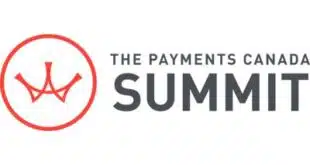More than 10 years after Visa Inc. wrote its rules permitting surcharging on its credit cards, questions remain among acquirers, especially those selling or considering surcharge programs for their merchants.
Now, as more merchants mull surcharge or cash-discount programs to alleviate some of their card-acceptance costs, and with recent changes put in place by Visa, the subject is getting more attention. Surcharging was enabled as part of a multibillion-dollar credit card interchange settlement in 2013.
Visa’s changes to its surcharge rules surfaced earlier this year. In April, after issuing a January bulletin noting it would reduce the cap on credit card surcharges from a maximum of 4% to no more than 3%, Visa quietly put the change in place.
The move comes as Visa boosts enforcement of the cap. And it comes as more merchants turn to surcharge and cash-discount programs to recoup their card-acceptance costs. Surcharging is not allowed on debit cards, though some government entities may collect a service fee with either credit or debit cards.
That cap reduction drew questions last month at the Western States Acquirers Association conference in Carlsbad, Calif., as merchant-sales professionals expressed curiosity and confusion at the move. With a cash discount, card prices are posted and a discount on that price is offered to customers who pay with cash, according to a presentation during the conference. A surcharge refers to cases when cash and debit card prices are posted and customers are charged an additional fee on top of that price when paying with a credit card.
Some programs may label the fees as service fees or non-cash adjustments, but these moves are still considered a surcharge. Dual pricing may be another program. This is common at gas stations that offer a lower price for cash transactions than for those on payment cards. In a retail point-of-sale environment, a consumer might be presented with a cash price and a card price.
Visa’s Rob Johnson, senior director and head of Visa rules management for North America, told attendees during a panel on surcharging and cash discounting that there had been much concern that the 4% rate that had been pitched to merchants was not necessarily the cost of acceptance. The Visa rules allowed a surcharge that does not exceed the merchant discount rate for the card or the maximum of 4%, as originally written. Following Visa’s January bulletin, that cap is now 3%.
In addition to the reduction, Visa is stepping up its enforcement. Johnson said the number of consumer complaints about surcharging—approximately 6,000 annually in the United States—is more than volume of compliance complaints from the rest of the world combined.
When asked if 6,000 is enough to warrant the boosted oversight in a nation of 350 million, Johnson said the complaints are from the most ardent consumers and that most do not file a complaint with Visa. “I would argue that 6,000 people choosing to go to Visa and complain about something is a lot,” Johnson said. “I would argue it’s the tip of the iceberg.”
Panelist Travis Everett, chief operating officer of the National Merchants Association, a Las Vegas-based merchant-services company, said some of the responsibility for ensuring surcharge and cash-discount programs are compliant falls on the merchant-services provider.
“The goal should be to find a way to sell this in a compliant fashion,” Everett said. Indeed, the goal should be a happy customer that makes a happy merchant who makes the industry happy, he added.
Visa also is ramping up its auditing of merchants found out of compliance. Johnson said Visa will validate that a noncompliant merchant has become compliant. Noncompliance can carry penalty fees, assessed to the acquiring bank and usually passed along to the merchant.
Masking a surcharge as something else, such as a Covid recovery fee, and charging more than the allowed 3%, could generate fines. “There’s a lot of games going on in the industry now,” Johnson said.
Still, the Visa effort is not meant to curtail an acquirer’s ability to offer a surcharging program, Johnson stressed. “We are not going to take away your ability to surcharge or do cash discounting,” Johnson said. “That is not on the table. However, what is in jeopardy is the ability to do it incorrectly.”




